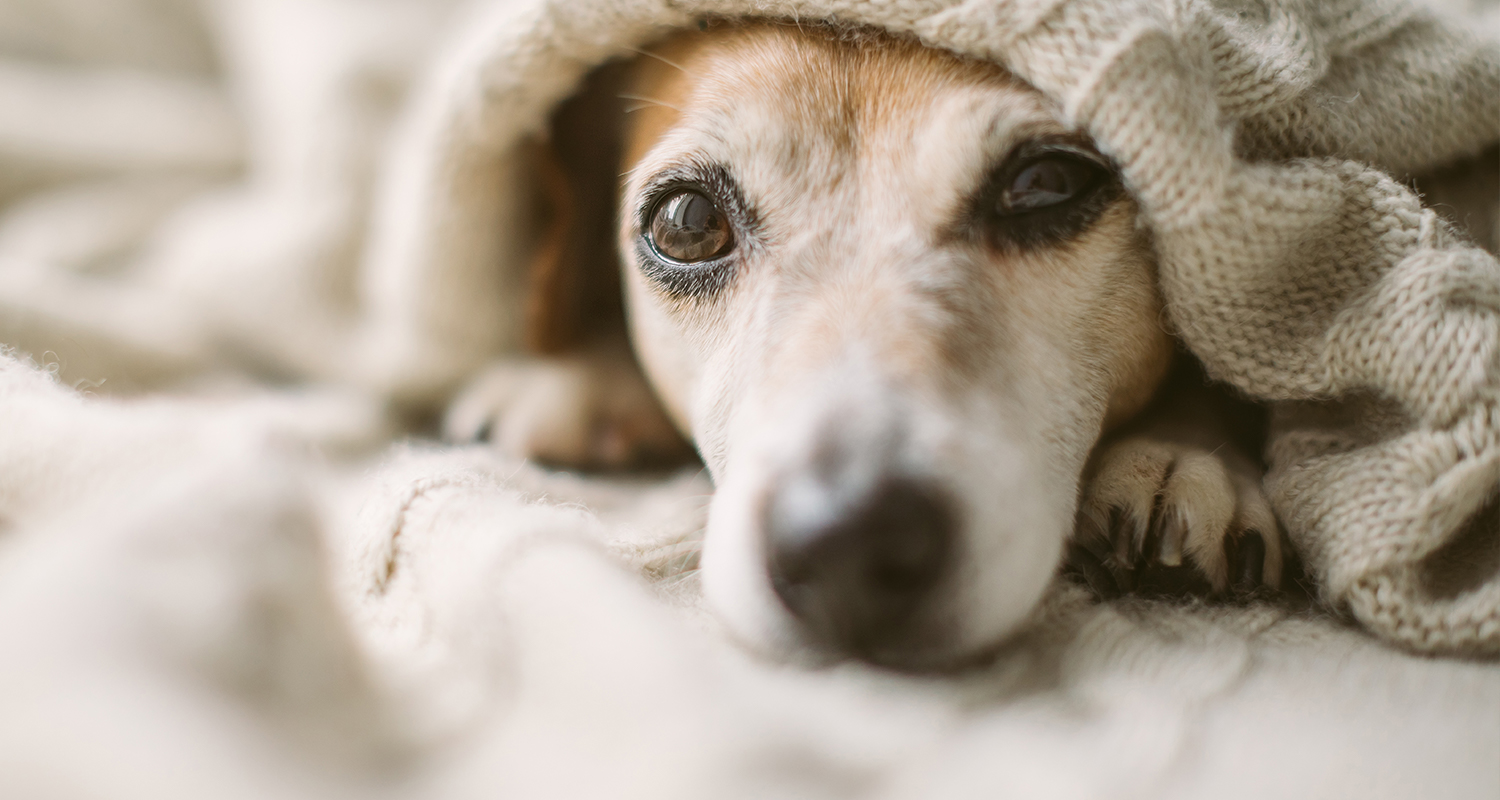
Kennel Cough Causes, Symptoms & Treatment
Like humans, dogs can catch viruses and infections and show symptoms similar to that of a cold or flu. Kennel cough is a common respiratory infection in dogs caused by bacteria or viruses. When the respiratory tract becomes inflamed from these microorganisms, the irritation can cause a persistent dry cough.
It’s important to understand how to care for your dog if they become sick with kennel cough. If left untreated, upper respiratory infections can progress to become severe, especially in dogs with secondary health concerns.
Keep reading to learn what kennel cough is, symptoms to look for, and how you can help your dog recover.
What Is Kennel Cough In Dogs?
Also known as Canine Infectious Respiratory Disease, Bordetella, or Canine Infectious Tracheobronchitis, kennel cough is a highly contagious upper respiratory infection in dogs. The irritation in the airways causes a dry cough and also increases the risk of secondary infections.1
Kennel cough is aptly named as it spreads quickly when there are many dogs in close quarters such as kennels and animal shelters.
What Causes Kennel Cough In Dogs?
Kennel cough is most commonly caused by the bacteria bordetella bronchiseptica and the canine parainfluenza virus, but other microorganisms can cause it as well.2 It is transmitted by inhaling airborne droplets released when a sick dog coughs, by direct contact with a sick dog, or sharing contaminated food bowls and toys.3
There are several other factors that make dogs more susceptible to catching kennel cough, including:
- Age, especially puppies that don’t have a fully developed immune system4
- Stress
- Exposure to dust or smoke
- Cold temperatures5
What Are The Symptoms Of Kennel Cough?
Dogs with kennel cough generally maintain their appetite and energy levels. The classic symptoms of kennel cough include:
- Persistent dry cough (no sputum)
- Retching
- Cough worsened with exercise6
Some other possible but less common symptoms include:
- Sneezing
- Runny nose
- Discharge around the eyes
What To Do If Your Dog Has Kennel Cough
Kennel cough is rarely severe, and uncomplicated kennel cough will usually go away on its own. However, medications are commonly given to help your dog recover quicker and prevent the condition from worsening. If you suspect your dog has kennel cough, take them to the vet for an examination.
A diagnosis is made based on symptoms, history of contact with other dogs, and once other conditions have been ruled out. Your vet may order blood tests, a urine test, culture swabs, or chest x-rays to determine the cause of your dog’s symptoms.7
If your pet is showing signs of fever, lethargy, and loss of appetite, seek immediate medical attention. These symptoms usually indicate a more serious condition such as pneumonia and can be potentially life threatening.8
What Is The Treatment For Kennel Cough?
Antibiotics are commonly prescribed, even in uncomplicated cases, to treat the infection and prevent the condition from worsening. Dog-safe cough suppressants can be administered (under the direction of your vet) to help keep your dog comfortable.9
What Can I Give My Dog For Kennel Cough?
Aside from the medication prescribed by your vet, do not give your dog any over-the-counter medications for human coughs and colds.
Here are a few safe things you can do at home to help ease your dog’s symptoms:
- Use a humidifier or bring your dog into the bathroom while running a hot shower to help moisten your dog’s air passages and reduce irritation.
- Use a harness instead of a collar when walking to help reduce bouts of coughing.10
If no improvement is seen within a week of starting treatment, contact your vet for a secondary examination.

How Long Is A Dog With Kennel Cough Contagious?
Dogs with kennel cough will usually show symptoms 2 to 14 days after exposure, and are usually sick for 1 to 2 weeks. A dog with kennel cough can be contagious to other dogs for up to 2 to 3 months after becoming infected.11
To prevent the spread of the disease, dogs with kennel cough should be isolated until after symptoms clear up. A general rule of thumb is to keep your dog away from other animals for two weeks after symptoms disappear.
Preventing Kennel Cough
Vaccinations are available to help protect against bacteria bordetella bronchiseptica and/or the canine parainfluenza virus, which are very helpful in dogs that are frequently in social settings with other dogs.
There are three types of vaccinations available: injectable, internasal, and oral. Speak with your vet to determine which vaccine is best for your dog.
Even with vaccination, it is still possible for dogs to become infected with kennel cough so it is important to be observant, especially after your dog has been in contact with other dogs. If you suspect your dog is getting sick, don’t hesitate to take them to the vet for an examination.
1 http://www.pethealthnetwork.com/dog-health/dog-diseases-conditions-a-z/…;
2 https://www.petmd.com/dog/conditions/respiratory/c_dg_canine_tracheobro…;
3 http://www.pethealthnetwork.com/dog-health/dog-diseases-conditions-a-z/…;
4 https://www.petmd.com/dog/general-health/does-your-dog-need-kennel-coug…;
5 https://pets.webmd.com/dogs/kennel-cough-in-dogs#1
6 https://veterinarypartner.vin.com/default.aspx?pid=19239&id=4951478
7 https://www.petmd.com/dog/conditions/respiratory/c_dg_canine_tracheobro…;
8 https://veterinarypartner.vin.com/default.aspx?pid=19239&id=4951478
9 https://www.petmd.com/dog/conditions/respiratory/c_dg_canine_tracheobro…;
10 https://pets.webmd.com/dogs/kennel-cough-in-dogs#2
11 https://veterinarypartner.vin.com/default.aspx?pid=19239&id=4951478
